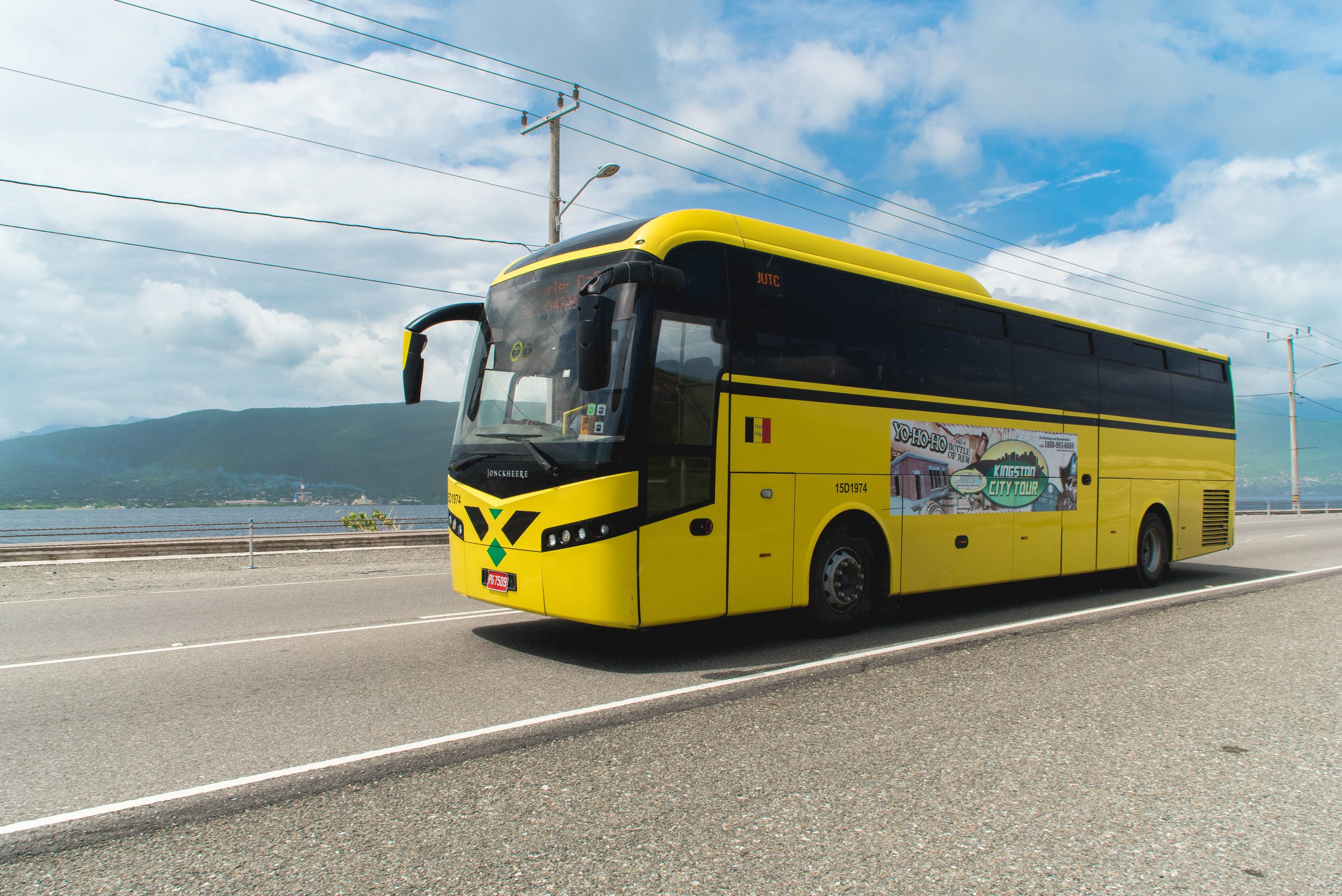
JAMAICA Urban Transit Company (JUTC) Public Relations Manager Cecil Thoms is confident that whatever issues may arise during the current testing period for the new electric buses will be addressed promptly.
“Time will tell, but we do anticipate challenges as the company is embarking on a pilot project for the training and sensitisation process, and in anticipation of the arrival of the other four buses expected to be imported next year,” he told the Jamaica Observer‘s weekly Auto magazine.
The bus, which arrived late November, seats 35 passengers, and has special needs access to accommodate members of the disabled community. In another couple of weeks, after the completion of the licensing and insurance processes, as well as staff training and sensitization, the company will be embarking on a pilot project to test the unit.
The Government will be spending approximately US$6.4 billion to acquire 50 buses to increase the JUTC’s fleet. Of the total, 45 will be diesel buses valued at US$5,400,000 while the remaining five will be electric buses valuing US$1,085,000.
JUTC Managing Director Paul Abrahams says that the unit, valued US$285,000, has been provided to the JUTC for the six-month project at no cost to the company. He said that the criteria for testing include the type of terrain that the buses operate on, maintenance, routing, and battery life.
Abrahams says there is currently no contractual arrangement with the manufacturer or the local dealer. The unit has a seating capacity of 35 with standing room for 20 passengers. However, some seats will give way to facilities for the disabled.
Abrahams said the criteria for testing include the type of terrain that the buses operate on include maintenance, routing, and battery life. He noted that that there is a device in the charging facility that measures the kilowatts of electricity used when the unit is being powered up.
He noted that action will enable the JUTC to calculate the percentage of electricity relating to the facility that is used each month. He also stated that, upon completion of the testing phase, discussions will be held with the Ministry of Transport and Mining on the way forward regarding purchasing the bus; however, there is currently no contractual arrangement with the manufacturer or the local dealer.
He pointed out that fuel diversification has been a long-standing priority at the JUTC, said the entity has been exploring the possibility of utilising buses fuelled by natural gas as well as a bio-diesel project.
“This basically fits into a plan to possibly try and convert the JUTC’s fleet from diesel-operated buses to a more efficient form of energy,” he said.
Minister of Transport and Mining Audley Shaw told Parliament earlier this year that it is expected that the newer diesel buses will have better fuel efficiency and lower carbon footprint per passenger trip than the buses of older technology.
